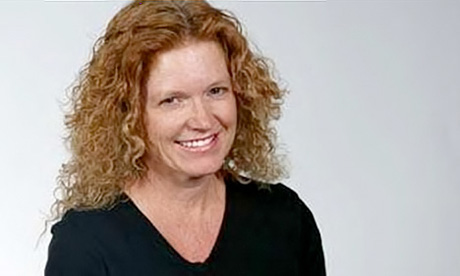Since retiring from my job, I have found myself afflicted by a mysterious ailment.
Here is the main symptom, which my husband and I just had a fight about: He finds me irritating.
We had a talk (after fighting), and he is right: I am mothering him.
Smothering him.
Treating him like he is incapable of managing adulthood.
“I have a mother,” he said. “I want a wife, a partner, a best friend.”
It seems I cannot stop mothering.
I was an at-home mother during the formative years of my four daughters’ lives.
I was also a stealth writer, penciling sentences on the back of the shopping list while waiting for a dance class to end, typing quietly before anyone was awake, selling essays on parenting to magazines and newspapers for modest sums.
But mothering always came first.
When my daughters got older, I worked full time in a state prison library, where I found that while incarcerated men might seem tough, many of them really needed a mother.
As my adult daughters moved away, my mothering skills were still useful in working with hundreds of inmates. I have always been good at mothering.
Apparently, I just don’t know when to stop—or whether or not I am supposed to stop.
Thoughts about mothering and not mothering were gnawing at me when I heard Glenn Close’s acceptance speech at the Golden Globes.
She had just won a best-actress award for her portrayal in “The Wife” of a woman long obscured by her husband’s shadow.
“My mom…sublimated herself to my father her whole life,” Ms. Close said.
Her words stunned me.
That was my mom.
That was a whole generation of moms.
I often felt sad for my mom for never figuring out who she was beyond her roles as a wife and mother.
But she didn’t know how.
She didn’t know where to begin.
Decades of sublimating herself to my father and her six children left her feeling betrayed and abandoned when that long chapter was over.
Ever after, she was unhappy, bitter, closed-off from life.
I loved her, but I never wanted to be her.
Glenn Close made many women in the audience wipe away tears of recognition. “Women, we’re nurturers…but we have to find personal fulfillment,” Ms. Close said. “We have to…follow our dreams.”
I think of my daughters, now grown up, and how nurturing them was the most important work I ever did.
They long ago fledged from the nest.
Today I watch them following their dreams through a precarious and not always cooperative world.
I am proud of them.
Since my retirement, however, I have unconsciously slipped into mom-mode.
More specifically, my-mom’s-mode.
I am smothering them, too. I am hovering. I am worrying. I am feeling unnecessary. I am acting like someone I do not care to be.
Maybe I need to retire from mothering, too.
Do mothers retire? Should we retire? Continue reading
- Valerie Schultz is a freelance writer, a columnist for The Bakersfield Californian and the author of Closer: Musings on Intimacy, Marriage, and God. She and her husband Randy have four daughters.
- Image: Bakersfield
